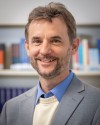Partners and members of the DFG network, the Erasmus and the Movetia project
Are you interested in the work of the network? Write us an email via the contact form.

Christine Bark
Fachärztin für Kinder- und Jugendlichepsychiatrie und -psychotherapie, ist Mitarbeiterin am Institut für psychosoziale Prävention im Zentrum für Psychosoziale Medizin des Universitätsklinikums Heidelberg und ärztliche Leiterin der dortigen Sprechstunde für Eltern mit Säuglingen und Kleinkindern. Sie forscht u.a. über Mentalisierung und die Entwicklung der Mentalisierungsfähigkeit, über Regulationsstörungen in der Frühen Kindheit und über neurobiologische Grundlagen psychischer Krankheiten. Der Schwerpunkt ihrer Forschungen liegt bei Säuglingen und Kleinkindern

Noëlle Behringer
Noëlle Behringer is a psychologist (M.Sc.), social worker (M.A.) and child and youth psychotherapist (depth psychology). As part of her doctorate at Ludwigsburg University of Education, she worked on mentalisation processes among professionals in residental child care. She was a substitute professor for childhood studies at the Evangelische Hochschule Darmstadt and now works as an Advanced Researcher at the Interkantonale Hochschule für Heilpädagogik in Zurich. Research emphasis: Psychoanalytic pedagogy and mentalisation-based pedagogy, youth welfare, biographical self-reflection and professionalisation.

Anna Beyer
Anna Beyer ist Sonderpädagogin und unterrichtet aktuell an einer Schule mit dem Förderschwerpunkt geistige Entwicklung. Im Rahmen ihrer Dissertation an der Pädagogischen Hochschule (betreut durch Prof. Dr. Gingelmaier) forscht sie zur mentalisierungsbasierten Supervision für Pädagog*innen.

Yvonne Brandl
Dipl.-Psych., Gruppenanalytikerin (D3G), ist Professorin an der Katholischen Hochschule NRW in Münster. Sie lehrt Klinische Psychologie und Entwicklungspsychologie mit dem Schwerpunkt frühe Interaktionsprozesse und ist Studiengangsleitung des Masterstudiengangs Beratung (EFL). Arbeitsschwerpunkte: Berufsbezogene Selbsterfahrung und Professionalisierung; Prävention sexualisierter Gewalt; Sprachprozesse in Gruppen.

Felix Brauner
Psychologist (M.Sc.), is a scientific assistant at the Department of Clinical Psychology and Psychotherapy (with a focus on psychodynamic psychotherapy) at the Psychological University of Berlin (PHB), and a psychotherapist in training (TP/AP) at the Alfred Adler Institute Berlin. His current work focuses on psychodynamic models of motivational and emotional processes, the use of mentalization theory in sociocultural contexts (e.g. conspiracy beliefs), and the effects of racism on mental health in Germany.

Andrea Dlugosch
Andrea Dlugosch studied special education for teaching as well as diploma in educational sciences and received her doctor´s degree in 2002. Since 2013 she has been a professor of pedagogy for learning disabilities and behavioral disorders at the University of Koblenz-Landau, Germany, Institute of Special Education, from January 1st, 2023, University of Kaiserslautern-Landau. She passed further trainings in Theme-centered Interaction (TCI) (diploma 2001, RCI intern., CH-Basel), AMBIT (Local Facilitator), Mentalization-Based Therapy (MBT) and MBT Adult (Anna Freud National Centre for Children and Families, London). Her main areas of work are: professionalization research, inclusion as a multi-level constellation, mentalization-based pedagogy and social network research.

Peter Fonagy
Professor Peter Fonagy OBE FMedSci FAcSS FBA PhD. Peter Fonagy ist Direktor der Division of Psychology and Language Sciences am UCL; Chief Executive of the Anna Freud National Centre for Children and Families, London; Consultant am Child and Family Programme at the Menninger Department of Psychiatry and Behavioural Sciences at Baylor College of Medicine; und hat visiting professorships an Yale und Harvard Medical Schools inne. Seine klinischen Interessen drehen sich um fruehe Bindungsbeziehungen, soziale Kognition, Borderline Persoenlichkeitsstoerung und Gewalt. Er ist Fellow der British Academy, der Academy of Medical Sciences und der Academy of Social Sciences and the American Association for Psychological Science.

Stephan Gingelmaier
Stephan Gingelmaier has two state degrees as a special education teacher, furthermore he is holding a master’s in general Science Education, a M.Sc. in Psychology and a PhD-Degree in Medical-Psychology. He has worked with emotional impaired children and adolescents in several positions as a special education teacher and is trained as a psychodynamic Family Therapist (BvPPF), psychodynamic Counsellor (IGA) and Group-Therapist/ Group-Analyst (D3G). Since 2015 Stephan is a Professor for Psychology and Diagnostics for Emotional and Social Development (Special Education of the Emotional Impaired) at Ludwigsburg University of Education. His main scientific fields of interest are: Mentalization and Attachment in non-clinical fields, Personality Disorder in the field of education, informal/everyday diagnostics, supervision/counselling, teacher professionalization and mental health.

Melanie Henter
Melanie Henter studied diploma in educational science for special educational needs. Since 2016 she has been a research associate at the University of Koblenz-Landau, Institute for Special Education, pedagogy for learning disabilities and behavioral disorders, from January 1st, 2023, University of Kaiserslautern-Landau. She passed further trainings in AMBIT (Local Facilitator), Mentalization-Based Therapy (MBT), MBT Adult (Anna Freud National Centre for Children and Families, London) as well as Systemic Counselling. She is a member of the AMBIT study group (Anna Freud National Centre for Children and Families, London) and she is reliable in RFS (Reflective Functioning Scale). Her main areas of work are: mentalization-based pedagogy, innovation and implementation research, implementation of AMBIT in youth welfare systems (PhD) and systemic work/counselling in educational contexts.

Johannes Huber
Diplom-Psychologe, Professor für Psychologie an der Technischen Hochschule Rosenheim/Campus Mühldorf a. Inn. Fortbildungen in Bindungsbasierter Beratung und Therapie (BBT), Bindungsdiagnostik (Attachment Q-Sort), sowie Entwicklungspsychologischer Beratung (EPB). Er lehrt Entwicklungspsychologie mit dem Schwerpunkt Frühe Kindheit, frühe Interaktionsprozesse und sozio-emotionale Entwicklung und ist Studiengangsleitung des Bachelorstudiengangs Angewandte Psychologie (B.Sc.). Arbeitsschwerpunkte: Entwicklung und Sozialisation im Kindesalter, Väterforschung, Prävention und Intervention im frühen Kindesalter, Geschlechtsbezogene Aspekte kindlicher Entwicklung.

Joost Hutsebaut
Clinical Psychologist and MBT-psychotherapist. Developer of MBT-early, an early intervention adaptation of Mentalization Based Treatment. Principal researcher, focused at three main areas of interest: prevention and early intervention of personality pathology, assessment of personality pathology, generic interventions for personality disorders. Assoc iated with the Tilburg University and the Center of expertise on Personality Disorders in the Netherlands. Board member oft he ESSPD.

Holger Kirsch
Holger Kirsch, Prof. Dr. med., Arzt für psychosomatische Medizin und Psychotherapie, Psychoanalytiker, Supervisor und Lehranalytiker (DGPT, DGIP), tätig als Professor am Fachbereich I (Soziale Arbeit) an der Evangelischen Hochschule Darmstadt, sowie in eigener Praxis. Er war Gastprofessor am Arbeitsbereich Psychoanalytische Pädagogik des Instituts für Bildungswissenschaft der Universität Wien (Sommer 2017) und ist Koordinator des Erasmus+-Projekts Mentalisierungstraining für pädagogische Fachkräfte (CurrMentEd). Zusammen mit Josef Brockmann Publikationen und Fortbildungen zu Mentalisieren in der Psychotherapie, sowie zur Psychotherapieprozessforschung.

Tillmann F. Kreuzer
Tillmann F. Kreuzer is a certified secondary school teacher in German, History and Social Studies as well as an additional subject in school counseling. He holds a diploma in the field of school pedagogy and a master's degree in the didactics of German. In 2016, he completed his doctorate (Dr. päd.) on the topic "Siblings as educators?!" at the Heidelberg University of Education. Since 2017, he has been a licensed child and adolescent psychotherapist specializing in analytical and depth psychology-based therapy for children, adolescents, young adults and their parents. In this field of work he successfully cooperates with clients from the special educational fields of learning and behavioral disorders as well as emotional and social developmental disorders.
At the Ludwigsburg University of Education he teaches in the department of general education with a focus on psychoanalytic education as an academic councilor. His main research interests are: Professionalization in teacher education, family, psychoanalytic pedagogy, learning and behavioral disorders and emotional and social development in children and adolescents as well as development of menatlisation spaces in educators.

Robert Langnickel
Robert Langnickel, Dr. phil., is a lecturer in the Master's programme in Special Needs Education and a researcher and project manager at the Institute for Diversity and Inclusive Education (IDB) at the Lucerne University of Teacher Education. Additionally, he is a postdoctoral researcher and habilitation candidate at the Ludwigsburg University of Education.
He studied psychology (Dipl.-Psych.) as well as philosophy, history, and literature (M.A.) at the University of Bielefeld, and completed his doctorate in psychoanalytic pedagogy and mentalisation theory at the Ludwigsburg University of Education. His dissertation on social and emotional development was honored with the Siegfried Bernfeld Prize by the Commission for Psychoanalytic Pedagogy of the German Educational Research Association (GERA/DGfE). Robert Langnickel is a member of the of the board of this commission. He was a visiting researcher at the Department of Medical Psychology and Medical Sociology at the Faculty of Medicine, Leipzig University.
He has worked in Swiss schools for over twelve years as a teacher and most recently as the principal of a special education school. He has taught special education at the HfH (Zurich), LMU Munich, JMU Würzburg, Leipzig University, and Erfurt University. Langnickel has extensive experience working with young adults as a psychoanalyst in his private practice in Switzerland.
His research focuses on mentalisation-based special education, emotional and social development, internalising and externalising behavioural problems, general special education, psychomotor therapy, and psychoanalytic pedagogy.

Pierre-Carl Link
Pierre-Carl Link has been Professor of Education in the field of social-emotional and psychomotor development at the University of Teacher Education in Special Needs (HfH) Zurich since 2021. There Prof. Link represents theoretical and ethical-normative foundations of special needs education for people with emotional and behavioural disorders as well as psychomotor therapy. In his research, he advocates a praxeological and casuistic perspective in connection with reflexive approaches to opening up the (unconscious) logic of the subject in everyday educational practice. Prof. Link studied educational science, philosophy, theological studies and religious studies at the University of Würzburg, psychology and psychotherapy at the International Psychoanalytic University (IPU) Berlin, roman catholic theology at the University of Lucerne, old catholic and ecumenical theology at the University of Bonn and Bern. In parallel, he completed training in Gestalt therapy, group analysis, attachment psychotherapy and coaching, among other things. He has worked in the field of education for people with emotional and behavioural disorders at the three Bavarian university locations for special education teacher training in Würzburg, Regensburg and Munich, as well as at the University of Erfurt. His research focuses on education for people with emotional and behavioural disorders, inclusive education, psychomotor therapy, psychoanalytic pedagogy and Gestalt pedagogy. He is the initiator and leader of the MOVETIA network for mentalisation-based curative education "MentEd.ch - Bringing mentalisation-based education to Switzerland".

Lucia Maier Diatara
Lucia Maier Diatra is a psychomotor therapist and psychodrama teacher for adults and children. After many years of professional experience in practice, she now works as a lecturer and research assistant at the Institute for Educational Support for Behaviour, Social-Emotional, and Psychomotor Development at the University of Teacher Education in Special Needs (HfH) Zurich. Her special work and research focus is on investigating the connections between psychological processes in relation to body, movement and play in the development of socio-emotional learning in school children.

Lisa Marie Müller
Doktorandin an der Pädagogischen Hochschule Ludwigsburg, Fakultät III für Sonderpädagogik. Studierte Lehramt Sonderpädagogik (Fachrichtungen: emotional-soziale Entwicklung / Sprache) und das Erweiterungsfach Beratung. Forschungsschwerpunkt des Dissertationsprojektes: Mentalisieren im höheren Lebensalter.

Xenia Müller
Xenia Müller is a qualified special education teacher and works as a research assistant and lecturer at the Institute for Educational Support for Behaviour, Social-Emotional, and Psychomotor Development at the University of Teacher Education in Special Needs (HfH) Zurich. In her doctoral thesis at the Heilpdägogisches Institut of the University of Fribourg (CH) she dealt with school and general well-being in connection with externalising behavioural problems. Current work and research interests are: Special education diagnostics in the area of social and emotional development, school absenteeism, fears and shyness at school, emotion coaching, the new authority approach and ADHD.

Tobias Nolte
Tobias Nolte, MD, MSc, physician and psychoanalyst (IPA), is a Clinical Research Associate at University College London and a Senior Researcher at the Anna Freud National Centre for Children and Families, where he teaches the Reflective Functioning course. His clinical work is with the Camden Psychotherapy Unit, as a psychoanalyst in private practice, and in mentalization-based therapy with patients with borderline personality disorder at St. Ann's Hospital. His research interests include attachment and mentalization research, personality disorders, developmental psychology aspects of the emergence of epistemic trust and the underlying neural processes. He was a partner in the Erasmus+ project CurrMentEd and is a project partner in the continuation in the Swiss area funded by Movetia.
In addition to numerous peer reviewed publications, he is co-editor of: Social Learning, Relationships, and Mentalizing (with Holger Kirsch and Stephan Gingelmaier, Vandenhoeck & Ruprecht, 2022), Epistemic Trust (with Peter Fonagy, Klett-Cotta, 2023), and Psychoanalysis in Conversation with the Humanities and the Arts (with Ora Dresner and Rye Dag Holmboe, Routledge, 2023). Most recently published (with Kai Rugenstein): 365 x Freud (Klett-Cotta).

Axel Ramberg
Sonderschullehrer, Kinder- und Jugendlichenpsychotherapeut, ist Berater am Förderzentrum Bult (Schwerpunkt Emotionale und Soziale Entwicklung). Lehrbeauftragter an der Leibniz Universität Hannover, am Winnicott Institut Hannover und der PH Ludwigsburg. Daneben ist er selbstständig tätig als Kinder- und Jugendlichenpsychotherapeut. Forschungsschwerpunkt ist die mentalisierungsgestützte Pädagogik sowie deren Bedeutung für die professionelle Haltung von Lehrkräften.

Nicola-Hans Schwarzer
Studierte Sonderpädagogik (Lehramt) und Empirische Bildungsforschung. Er promovierte an der Pädagogischen Hochschule Ludwigsburg, Fakultät III für Sonderpädagogik, im Fachbereich emotional-soziale Entwicklung. Forschungsschwerpunkte: Mentalisieren bei nicht-klinischen Stichproben.

Svenja Taubner
Dipl.-Psych., Psychologische Psychotherapeutin/Psychoanalyse ist Direktorin des Instituts für psychosoziale Prävention im Zentrum für Psychosoziale Medizin des Universitätsklinikums Heidelberg. Sie ist akkreditierte Supervisorin und Trainerin für Mentalisierungsbasierte-Therapie für Adoleszente sowie zertifizierte Trainerin der Reflective-Functioning-Scale. Ihr wissenschaftlicher Schwerpunkt liegt auf der Erforschung und Weiterentwicklung des Mentalisierungskonzeptes, der empirischen Methoden zur Erfassung von Mentalisierung sowie der klinischen Implikation für Prävention und Intervention.

Agnes Turner
Agnes Turner ist Professorin für Pädagogik und Prodekanin der Fakultät der Interdisziplinären Forschung und Fortbildung an der Universität Klagenfurt. Sie ist Vorstandvorsitzende der ANSE (europäischer Dachverband für Supervision) und Mitglied des DFG Netzwerks mentalisierungsbasierte Pädagogik. Sie lehrt im Bereich der Lehramtsausbildung und Weiterbildung von Lehrkräften und forscht zu Fragen der Reflexion psychodynamischer Prozesse, emotionalen Aspekte beim Lernen und Lehren, mentalisierungs-basierter Pädagogik und Lernen und Lehren in einer digitalisierten Welt.
Schwerpunkte Forschung
- Wissenschaftstheoretische Aspekte zu Lern-Lehrprozessen
- Reflexion in Bildungsprozessen und reflexive Lernsettings
- Mentaliserungsbasierte Pädagogik
- Psychoanalytische Pädagogik
- Digitalisierung und Schule
- Professionsforschung
- Evaluationsforschung

Michael Wininger
Michael Wininger, Dr. phil., is a psychotherapist/psychoanalyst, social pedagogue and educational scientist. He is currently an Associate Professor and Program Director at the Department of Psychotherapy at Bertha von Suttner Private University in St. Pölten. As a lecturer, he also teaches at the University of Vienna in the areas of inclusion, teacher education and social-emotional development. In addition to his university activities, Michael Wininger works as a psychoanalyst in private practice in Vienna and Baden. He is currently a member of the board of the Vienna Psychoanalytic Society (WPV/IPA). He focuses on psychosocial intervention methods, psychoanalytic development theory and questions of university didactics and evaluation in the field of academic psychotherapy training.

